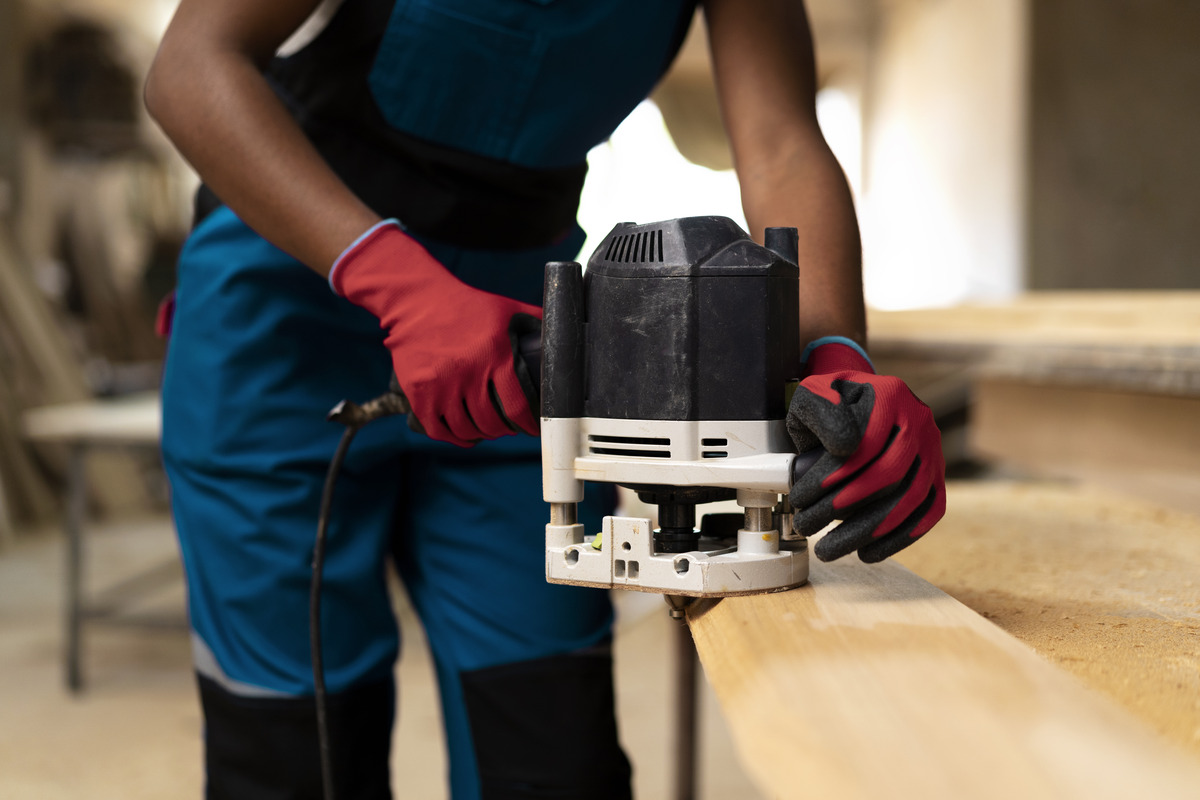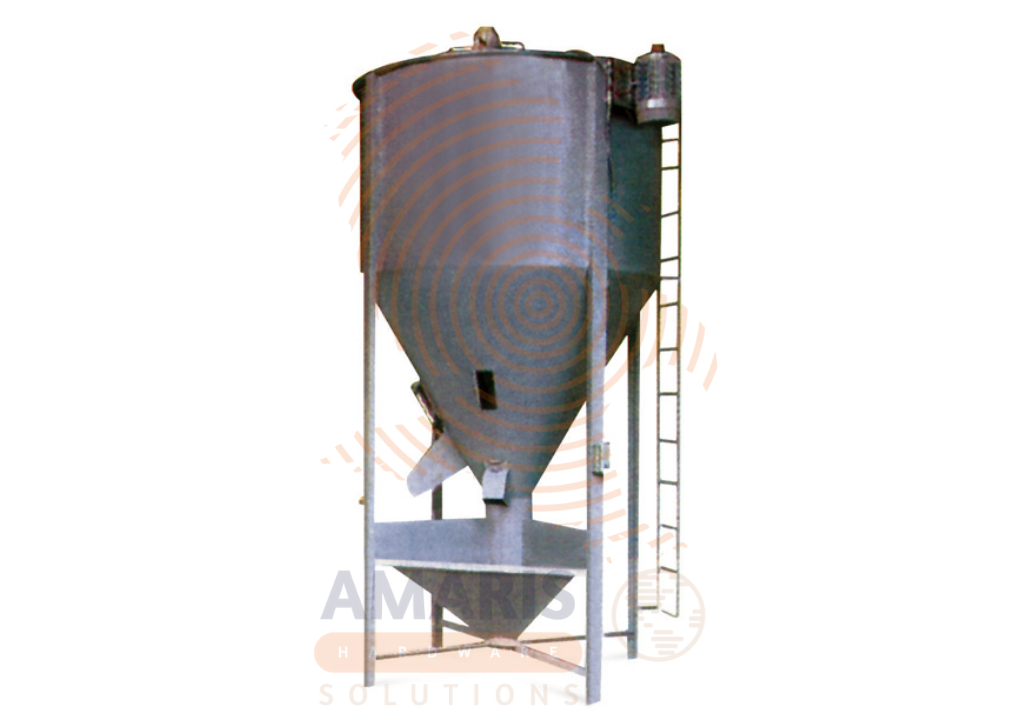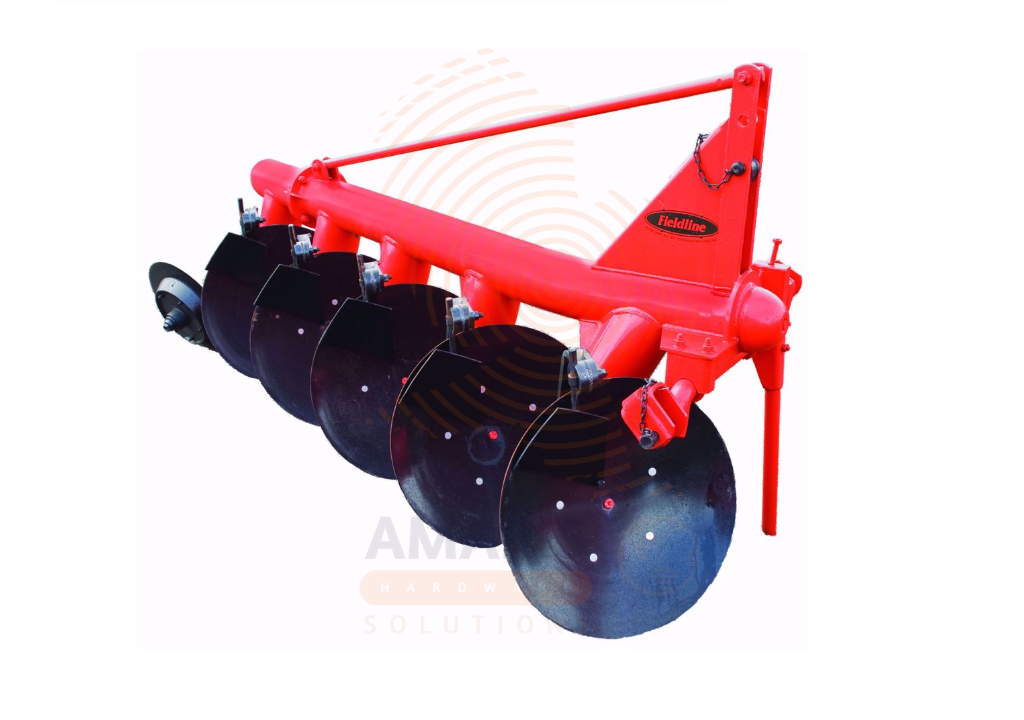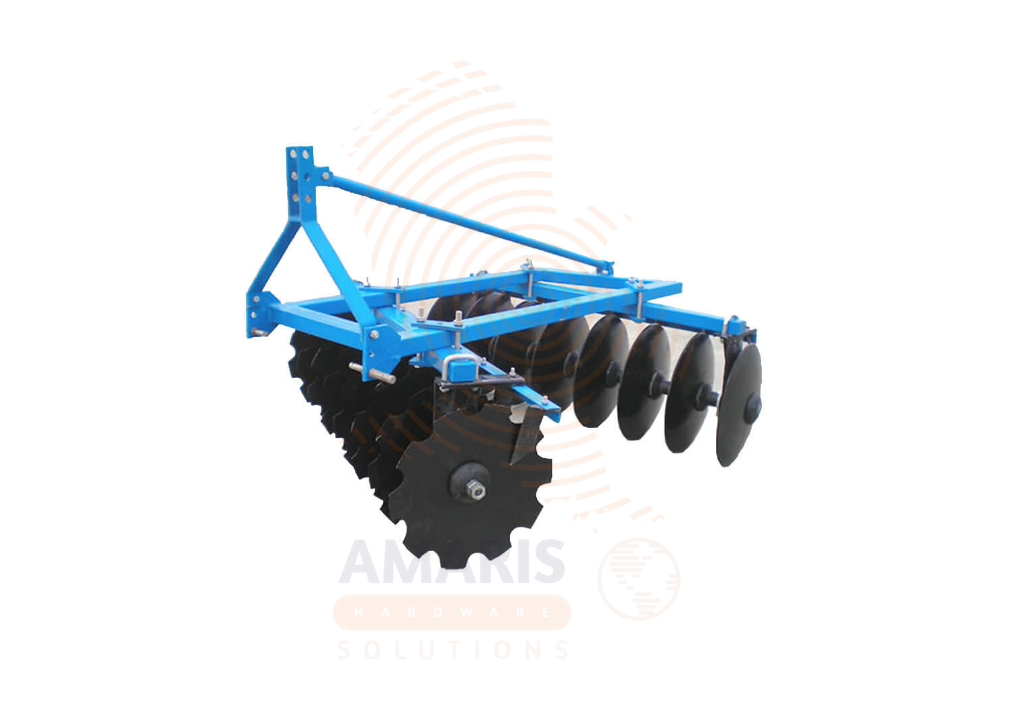How to Successfully Hatch Eggs: A Comprehensive Look at Egg Incubators
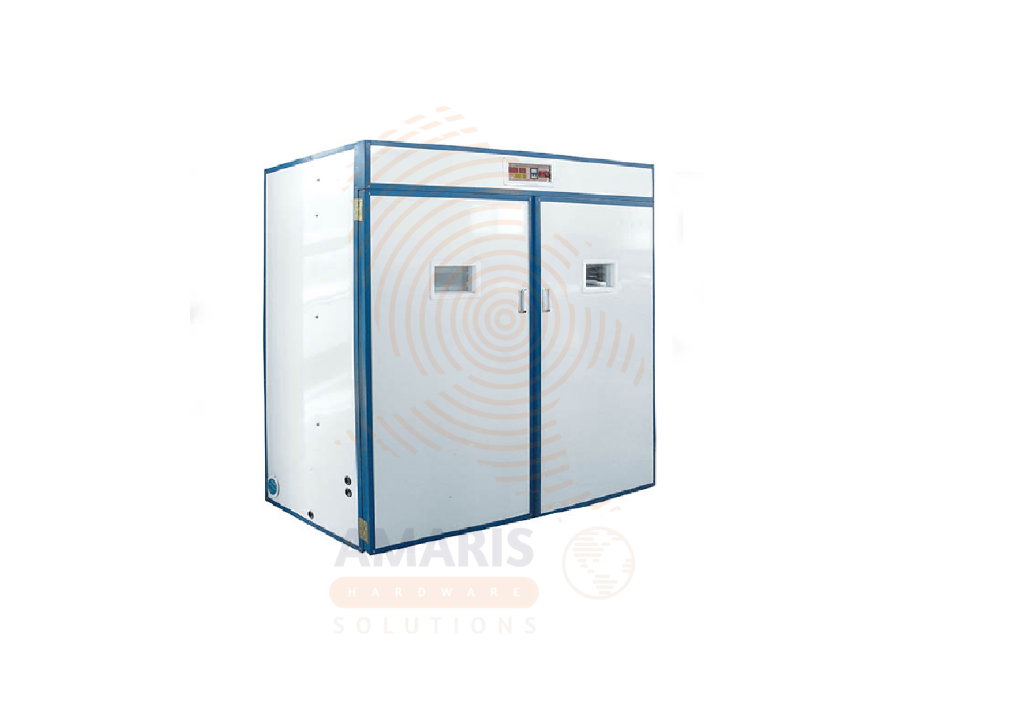
Hatching eggs is a delicate process, whether you’re raising chickens, ducks, or any other poultry. Successful incubation requires careful temperature control, humidity regulation, and the right egg-turning practices. An egg incubator can significantly improve your chances of success, especially for beginners. Let’s take a closer look at how egg incubators work and how to use them effectively.
What is an Egg Incubator?
An egg incubator is a controlled environment that mimics the natural conditions needed for eggs to hatch. It provides heat, humidity, and egg rotation, which are essential for embryo development. Incubators come in various sizes and models, from small tabletop units for hobbyists to large industrial incubators for commercial hatcheries.
How Does an Incubator Work?
At its core, an incubator creates the optimal conditions for eggs to develop. Most incubators maintain a constant temperature (usually around 99.5°F or 37.5°C) and humidity levels that are tailored to the specific type of eggs being hatched. Many modern incubators also include automatic egg turners, ensuring the eggs are rotated regularly, a crucial step in the hatching process.
Eggs need to be turned several times a day to prevent the developing embryo from sticking to the eggshell. Automatic turners make this job much easier, reducing the chances of human error and ensuring consistency.
Key Features to Look for in an Incubator
- Temperature Control: Accurate temperature regulation is essential. Some incubators offer digital temperature settings, while others use analog dials. Choose one that provides a reliable and easy-to-read thermometer.
- Humidity Control: The right humidity is essential for the eggs to hatch successfully. Some incubators have built-in humidity control, while others may require you to manually adjust the water level. Make sure the incubator can maintain stable humidity levels throughout the incubation period.
- Egg Turning Mechanism: Automatic turners are a great feature for hands-off operation. If you’re using a manual model, be sure you can consistently rotate the eggs several times per day.
- Capacity: Consider how many eggs you plan to hatch. Smaller incubators are suitable for hobbyists with just a few eggs, while larger ones can handle hundreds of eggs at once.
- Ease of Cleaning: Hatching eggs can be messy. Choose an incubator that is easy to clean and disinfect to maintain a healthy environment for your eggs.
Conclusion
Using an egg incubator is the best way to ensure your eggs have the best chance of hatching successfully. Whether you’re incubating a few eggs for a backyard flock or managing a large-scale hatchery, a good incubator can make all the difference. By choosing the right incubator and following the necessary care instructions, you’ll be well on your way to hatching healthy, happy chicks. Happy hatching!


 Acrylic Sealants
Acrylic Sealants Construction Adhesives
Construction Adhesives Double-Sided Tape
Double-Sided Tape Duct Tape
Duct Tape Electrical Tape
Electrical Tape Epoxy & Resins
Epoxy & Resins Masking Tape
Masking Tape
 Automotive Wrenches & Socket Sets
Automotive Wrenches & Socket Sets Battery Chargers & Jump Starters
Battery Chargers & Jump Starters Car Jacks & Stands
Car Jacks & Stands Car Wash & Detailing Products
Car Wash & Detailing Products Diagnostic Tools
Diagnostic Tools Tire Inflators
Tire Inflators Vehicle Lighting
Vehicle Lighting Oil & Lubricants
Oil & Lubricants
 Adhesives & Sealants
Adhesives & Sealants Bricks & Blocks
Bricks & Blocks Cement & Concrete
Cement & Concrete Drywall & Plaster
Drywall & Plaster Flooring (Tiles, Wood, Laminate)
Flooring (Tiles, Wood, Laminate) Lumber & Plywood
Lumber & Plywood Paints, Primers & Coatings
Paints, Primers & Coatings Insulation Materials
Insulation Materials Roofing Materials
Roofing Materials
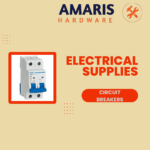 Circuit Breakers
Circuit Breakers Electrical Cables & Wires
Electrical Cables & Wires Switches & Sockets
Switches & Sockets Fuses & Relays
Fuses & Relays Connectors & Terminals
Connectors & Terminals Electrical Boxes & Panels
Electrical Boxes & Panels Conduit & Fittings
Conduit & Fittings Lighting Fixtures & Bulbs
Lighting Fixtures & Bulbs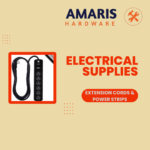 Extension Cords & Power Strips
Extension Cords & Power Strips
 Anchors
Anchors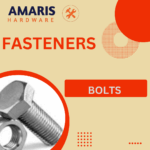 Bolts
Bolts Clips & Clamps
Clips & Clamps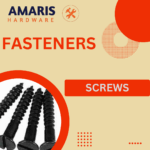 Screws
Screws Nuts
Nuts Washers
Washers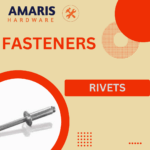 Rivets
Rivets Nails
Nails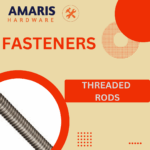 Threaded Rods
Threaded Rods
 Hammers
Hammers Measuring Tools (Tapes, Levels, Calipers)
Measuring Tools (Tapes, Levels, Calipers) Screwdrivers
Screwdrivers Pliers & Cutters
Pliers & Cutters Saws & Blades
Saws & Blades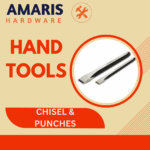 Chisels & Punches
Chisels & Punches Allen Keys & Hex Keys
Allen Keys & Hex Keys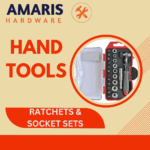 Ratchets & Socket Sets
Ratchets & Socket Sets Wrenches & Spanners
Wrenches & Spanners
 Power Tool Accessories (Blades, Bits, Discs)
Power Tool Accessories (Blades, Bits, Discs) Rotary Tools
Rotary Tools Saws (Circular, Jigsaw, Reciprocating)
Saws (Circular, Jigsaw, Reciprocating) Drills & Drivers
Drills & Drivers Grinders & Sanders
Grinders & Sanders Heat Guns
Heat Guns Nail Guns
Nail Guns Impact Wrenches
Impact Wrenches Batteries & Chargers
Batteries & Chargers
 Pipes & Fittings (PVC, Copper, PEX)
Pipes & Fittings (PVC, Copper, PEX) Plumbing Tools
Plumbing Tools Pumps & Motors
Pumps & Motors Sealants & Adhesives for Plumbing
Sealants & Adhesives for Plumbing Valves & Taps
Valves & Taps Water Heaters
Water Heaters Drainage Systems
Drainage Systems Faucets & Fixtures
Faucets & Fixtures Hoses & Tubing
Hoses & Tubing
 Hinges & Latches
Hinges & Latches Hooks & Brackets
Hooks & Brackets Window Hardware
Window Hardware Chains & Cables
Chains & Cables Casters & Wheels
Casters & Wheels Shelving & Storage Systems
Shelving & Storage Systems Door Handles & Locks
Door Handles & Locks Drawer Slides & Cabinet Hardware
Drawer Slides & Cabinet Hardware
 Personal Protective Equipment (PPE)
Personal Protective Equipment (PPE) Respirators & Masks
Respirators & Masks Safety Glasses
Safety Glasses Safes
Safes Security Cameras
Security Cameras Gloves
Gloves Helmets
Helmets Ear Protection
Ear Protection Fire Safety Equipment
Fire Safety Equipment Locks & Padlocks
Locks & Padlocks Motion Sensors & Alarms
Motion Sensors & Alarms
 Garden Fencing
Garden Fencing Garden Furniture Hardware
Garden Furniture Hardware Lawn Mowers
Lawn Mowers Trimmers & Edgers
Trimmers & Edgers Shovels & Spades
Shovels & Spades Rakes & Hoes
Rakes & Hoes Pruning Shears & Loppers
Pruning Shears & Loppers Watering Systems (Hoses, Sprinklers, Nozzles)
Watering Systems (Hoses, Sprinklers, Nozzles)
 Interior Paints
Interior Paints Paint Brushes & Rollers
Paint Brushes & Rollers Paint Strippers & Thinners
Paint Strippers & Thinners Paint Trays & Accessories
Paint Trays & Accessories Exterior Paints
Exterior Paints Spray Paints
Spray Paints Primers & Undercoats
Primers & Undercoats Varnishes & Stains
Varnishes & Stains
 Gaskets & Seals
Gaskets & Seals Hydraulic Fittings
Hydraulic Fittings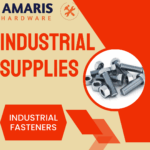 Industrial Fasteners
Industrial Fasteners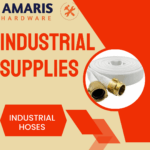 Industrial Hoses
Industrial Hoses Lubricants & Greases
Lubricants & Greases Metal Sheets & Bars
Metal Sheets & Bars Bearings & Bushings
Bearings & Bushings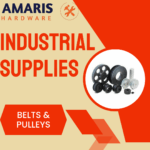 Belts & Pulleys
Belts & Pulleys
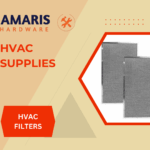 HVAC Filters
HVAC Filters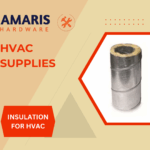 Insulation for HVAC
Insulation for HVAC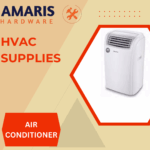 Air Conditioners
Air Conditioners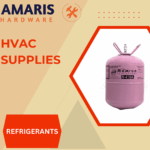 Refrigerants
Refrigerants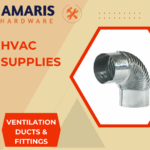 Ventilation Ducts & Fittings
Ventilation Ducts & Fittings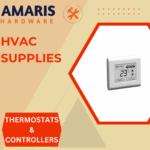 Thermostats & Controllers
Thermostats & Controllers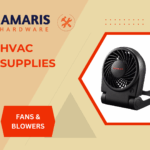 Fans & Blowers
Fans & Blowers
 Pegboards & Hooks
Pegboards & Hooks Shelving Units
Shelving Units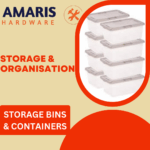 Storage Bins & Containers
Storage Bins & Containers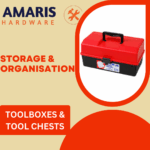 Toolboxes & Tool Chests
Toolboxes & Tool Chests Workbenches
Workbenches Drawer Organizers
Drawer Organizers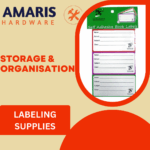 Labeling Supplies
Labeling Supplies
 Welding Accessories (Clamps, Brushes)
Welding Accessories (Clamps, Brushes) Welding Electrodes & Rods
Welding Electrodes & Rods Welding Helmets & Gloves
Welding Helmets & Gloves Welding Machines
Welding Machines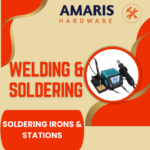 Soldering Irons & Stations
Soldering Irons & Stations Flux & Solder Wire
Flux & Solder Wire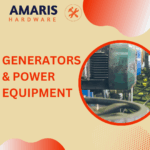
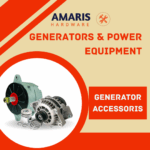 Generator Accessories
Generator Accessories Inverters
Inverters Portable Generators
Portable Generators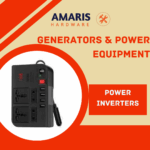 Power Inverters
Power Inverters Transfer Switches
Transfer Switches Diesel & Gasoline Generators
Diesel & Gasoline Generators
 Transport Equipment: Carts, Dollies, and Hand Trucks
Transport Equipment: Carts, Dollies, and Hand Trucks Storage Solutions: Pallets, Racks, and Containers
Storage Solutions: Pallets, Racks, and Containers Lifting Equipment: Hoists, Cranes, and Jacks
Lifting Equipment: Hoists, Cranes, and Jacks Conveyors & Accessories: Belts & Rollers
Conveyors & Accessories: Belts & Rollers
 Office Chairs
Office Chairs